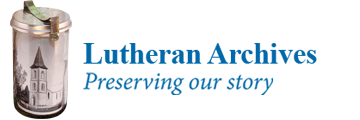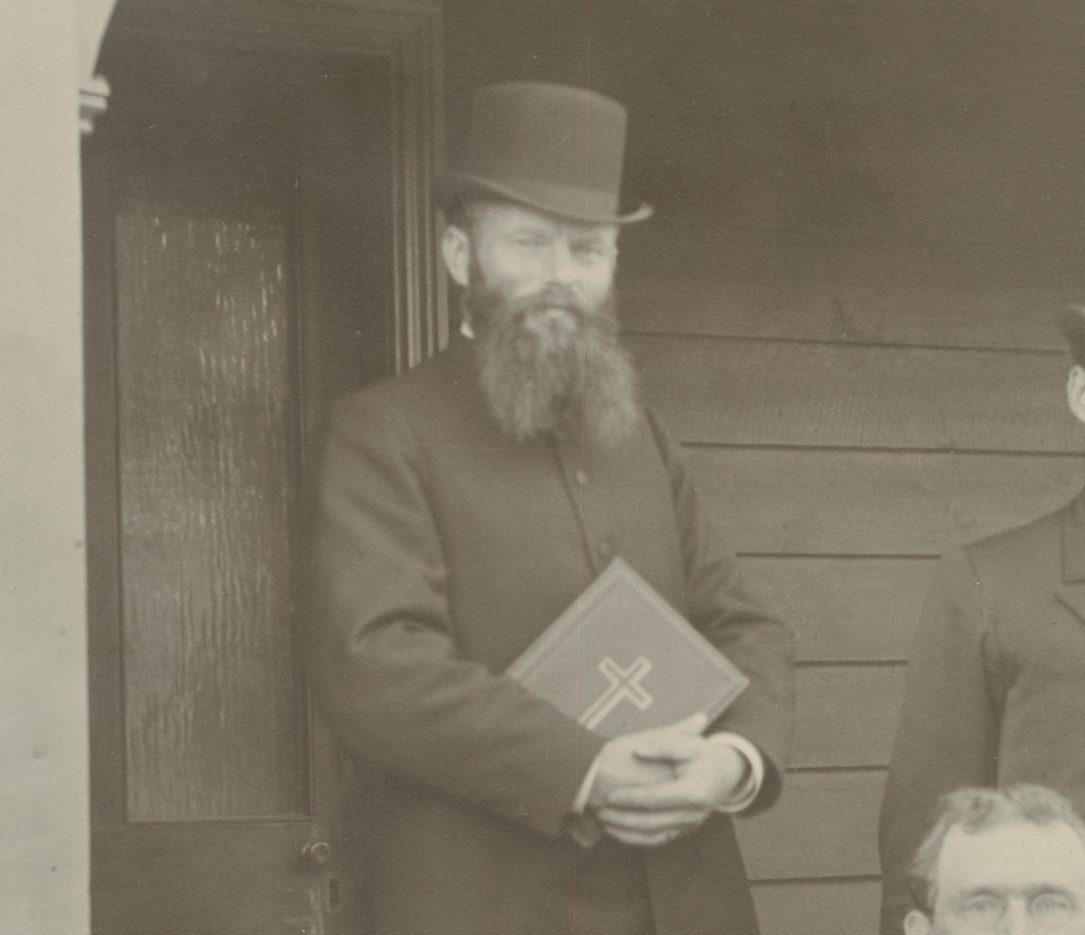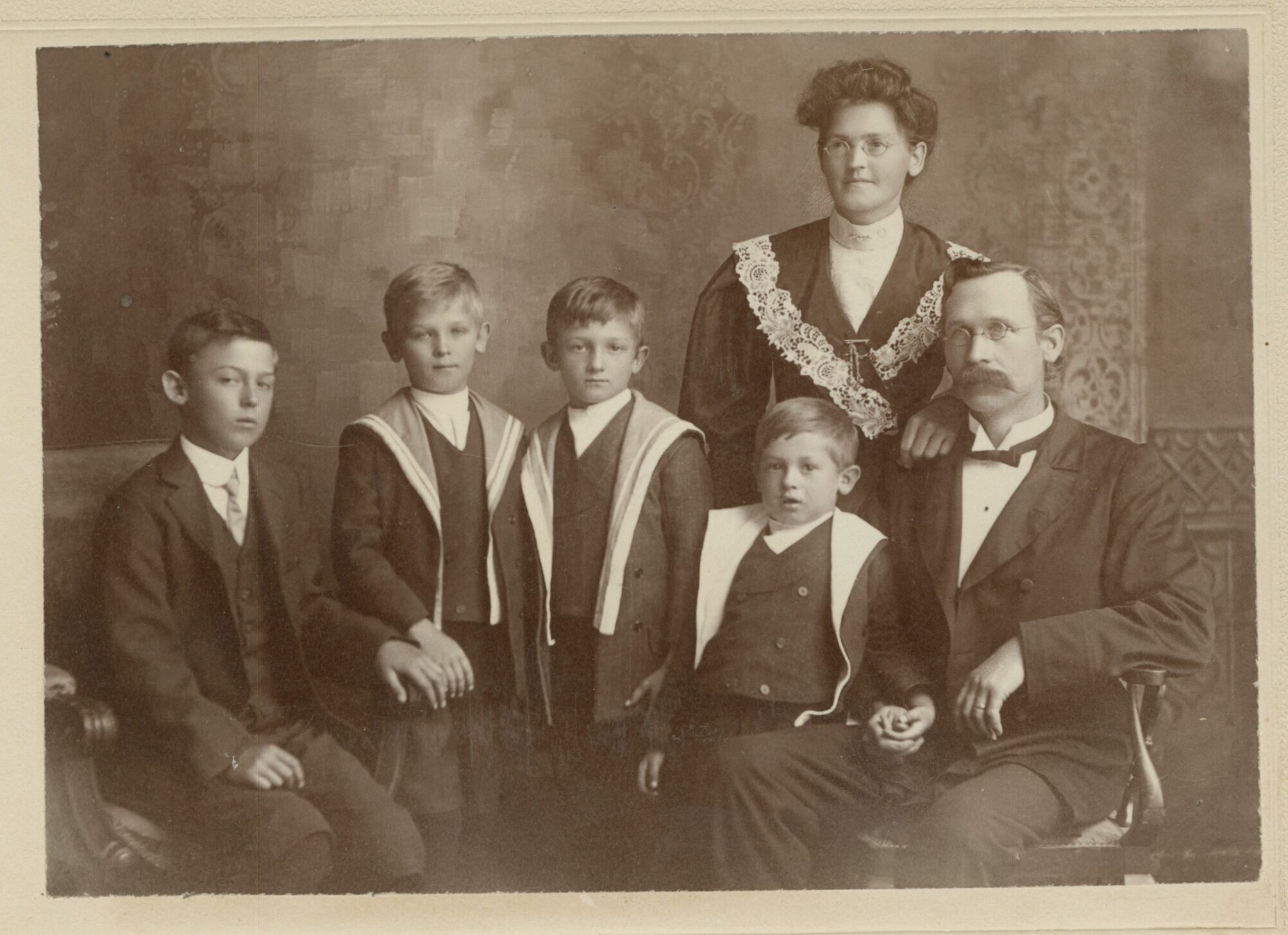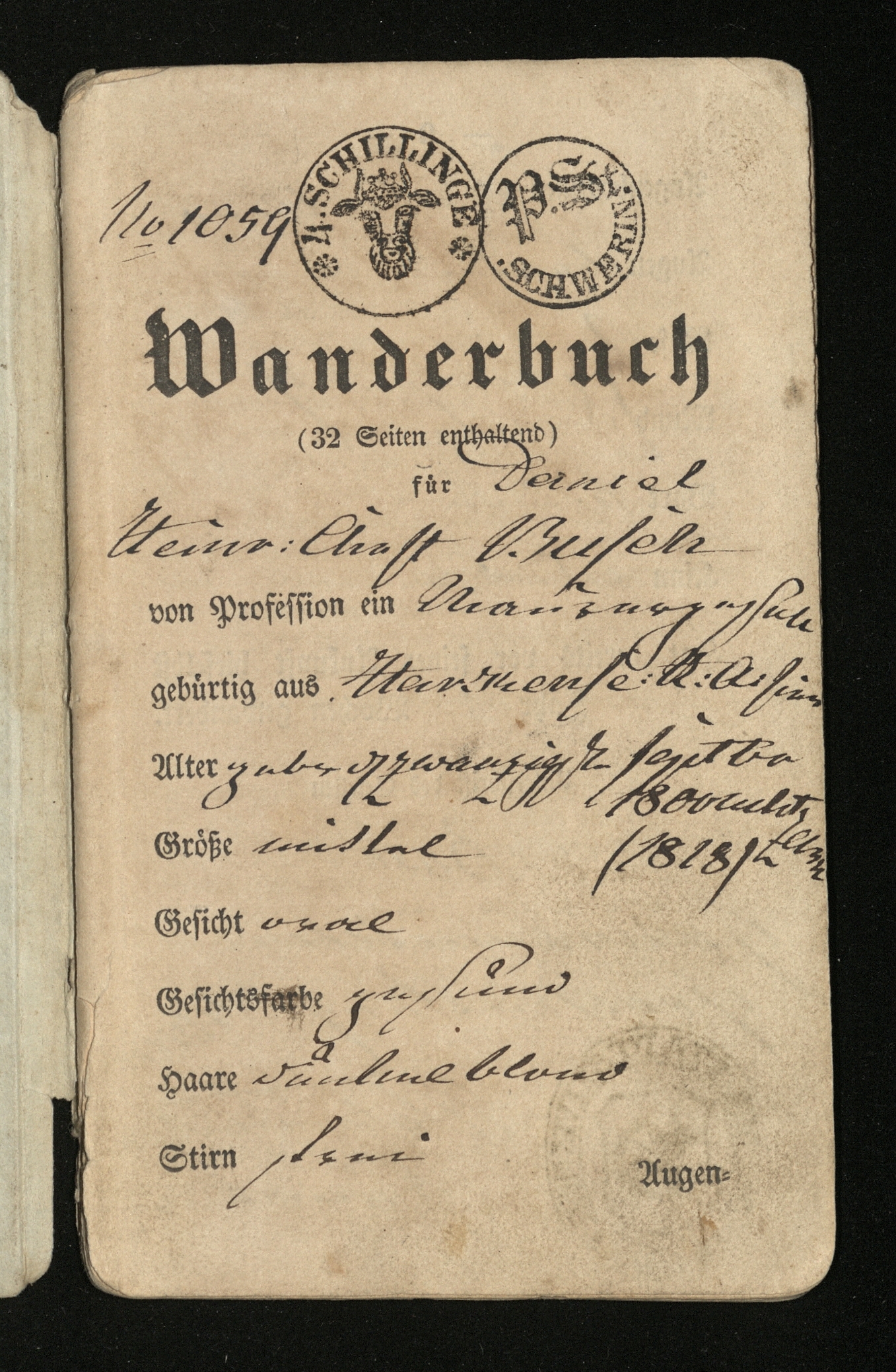Congregation Records
Congregations are the building blocks – the heart and soul – of the Lutheran church in Australia and New Zealand.
The earliest Lutheran congregations in Australia migrated together as communities for their faith, and founded new communities on arrival for the purpose of worshipping together. Wherever Lutherans settled, they came together for worship, established schools, built churches, and undertook the agricultural activities and other industries that would support and nurture them, becoming a key component in the social fabric of their communities.
To this day, congregations are the backbone of the Lutheran church. Delegates of congregations gather at synodical conventions at both district and national level to make decisions for the future of the LCANZ.
Close to 700 congregations from all districts of the LCANZ have deposited their records with Lutheran Archives, where they are stored according to archival preservation standards and made accessible to researchers: these holdings can be searched in the congregation records catalogue. Records date from the mid-19th century until the present day.
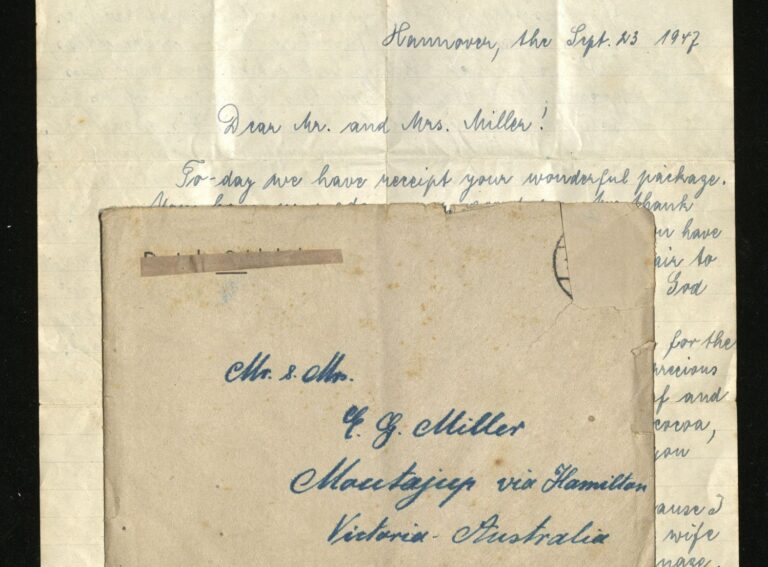
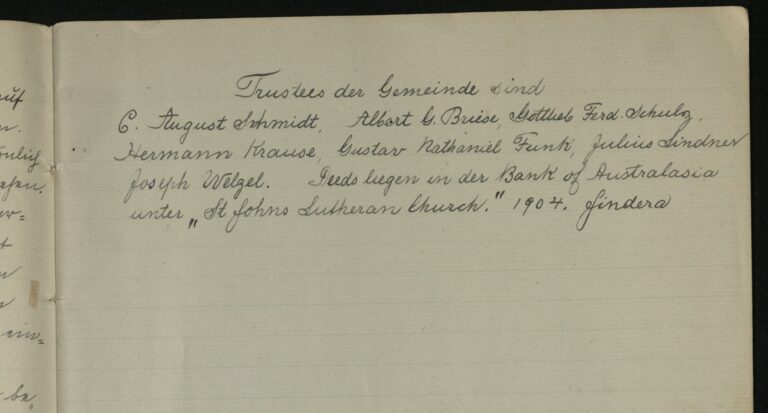
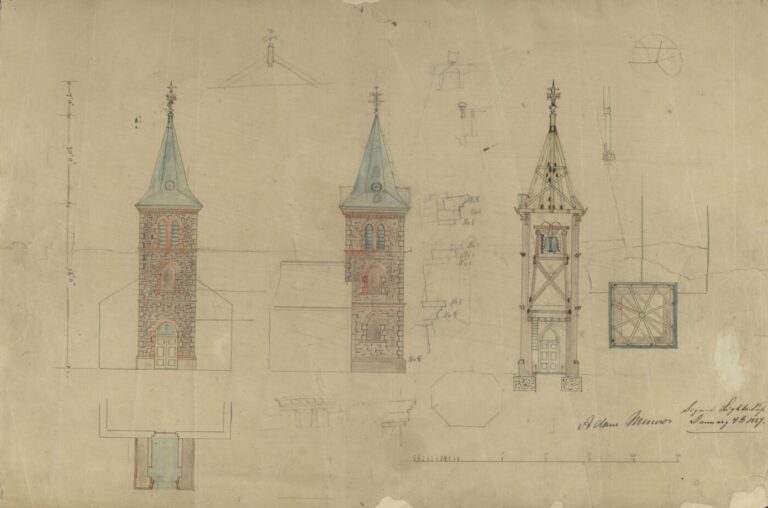
Congregation, Parish, Synod – some definitions
Congregation: a constituted group of worshippers.
Parish: a body of one or more congregations which calls and supports a pastor.
Synod: the church body to which pastors, congregations, and lay members belong, providing administrative oversight and theological guidance. See Synod & Department Records.
View the Congregation and Parish indexes below for summary information for each congregation and parish.
Multiple Churches in one location – why?
Across Australia and New Zealand, it has been common to find two or more Lutheran congregations in the same locality. These congregations were usually aligned with different synods, although some were independent or formed for other reasons. In many places, two historic Lutheran congregations combined when the LCA amalgamated in 1966, leaving one of the church properties to be sold, demolished, or used for other purposes.
Congregation Registers
Lutheran Archives holds a large collection of congregation and parish registers of pastoral acts (baptisms, confirmations, marriages, burials) from across the LCANZ. Each individual entry has been indexed by name and can be searched on the Genealogy and Family History page.
Photographs and other record types
Our congregation records catalogue lists the manuscript records produced by congregations (contact us directly for building plan enquiries). However, congregation material can also be found in the following format-specific collections:
Parish Papers
Many congregations and parishes produce regular newsletters or ‘parish papers’, which include local church and community news, upcoming events, devotional materials, and recent pastoral acts. Ongoing work to index names appearing in our collection of parish papers is in progress: these are included in our Names Index.
Congregation and Parish Indexes
The following indexes (available for download as PDFs) contain entries for all historic and current Lutheran congregations and parishes in Australia and New Zealand of which Lutheran Archives is aware, listed by location. All information is given with date ranges (wherever known) and compiled from church yearbooks and other sources. This is a living document and content is regularly updated – check back for latest versions.
The Congregations Index lists Lutheran congregations and preaching places. Information includes establishment and building dedication dates, synodical affiliations, parish alignments, and serving pastors throughout the congregations history.
The Parishes Index lists Lutheran parishes, regional parish alignments, and home mission fields. Information includes dates of operation, synodical affiliations, affiliated congregations, and serving pastors.
These indexes were originally compiled by Peter Weiss, whose work is gratefully acknowledged. Copyright is now held by Lutheran Archives – we make this freely available to you but please use appropriate references and citations.
Types of Records
Congregational life is rich and varied, with worship, administration, outreach, and fellowship all involving a wide variety of groups and activities. Records produced by specific groups and activities can be searched on our congregation records catalogue using the following record categories.
Church councils are the primary decision-making and governance body of a congregation, sometimes referred to by other names such as Stewardship Committee.
Records include minutes, reports, and correspondence.
Congregations often keep records of church services and attendance. These include communion attendance records, announcement books, membership lists, service records (giving statistics like attendance, sermon text etc), funeral service orders and obituaries, and visitor books.
Some pastors keep their own books of service records as they move from congregation to congregation, recording the statistics of every service they lead. These can be found in the Personal Papers collection.
For records of pastoral acts which occur within Lutheran services (baptisms, confirmations, marriages, burials), see Genealogy and Family History.
Congregation administration records include:
- Records of congregation meetings and AGMs – minutes, reports
- Constitutions and other legal documents
- Correspondence
- Membership records (including transfers); statistics
- Financial records – treasurer’s books, financial committee minutes, annual financial statements
Many Lutheran congregations have a rich tradition of preserving and telling their own histories, and of marking significant anniversaries with celebrations and publications. Commemorative service orders and congregation histories provide a valuable resource for researchers looking to gain a general overview or to confirm key facts and dates.
Records include published and unpublished histories, commemorative service orders, research notes, newspaper clippings, poems and original works, and other commemorative material and publications (e.g. commemorative cookbooks).
Some congregations establish men’s fellowships, sometimes known by the names men’s group, brotherhood, men’s association, or men’s society.
Records include minutes and correspondence.
Congregations often organise outreach projects to engage with and serve the wider community (eg annual picnics, community meals, sports groups or local radio programs). Sometimes this has been organised through dedicated home mission or evangelism committees. Outreach efforts can also include cross-cultural ministries, such as support networks for recent arrivals or hosting migrant/non-English-speaking congregations. Some congregations manage or are closely connected with aged care homes or other community services. All of these groups create and keep records, which tell the stories of their own unique contributions to the ministry of their congregation.
Records can include committee minutes, correspondence, ministry resources, and event fliers/invitations or programs.
The upkeep of physical premises and facilities, as well as new building projects, are often overseen by property committees and building committees. In addition to the church building, congregations may manage church halls and worship centres, office premises, and manses (provided housing for pastors).
Records include minutes, correspondence, legal documents (trustee, certificates of titles), records of building funds, and architectural records and specifications.
NB: Many architectural drawings and building plans are stored separately and not currently included in the congregation records catalogue. Please contact Lutheran Archives directly for architectural records inquiries.
Lutherans have always taken the education of their children, especially in faith matters, very seriously. Wherever Lutherans established congregations, they almost always established a school – frequently before the church was even built. These schools were often bilingual, teaching in German and in English, and taught not only religious instruction, but all subjects. Teachers fulfilled a key role in congregations, educated in seminaries and called in a similar way to pastors.
These Lutheran ‘day schools’ were closed by the Australian government during the First World War (1917), and many never reopened. Despite this, some schools have persisted as Lutheran private schools into the present day, and maintain an existing link with their founding congregation.
Records of Lutheran schools found in our congregation records catalogue include correspondence, committee minutes, and commemorative publications.
Most congregations with children in regular attendance run a Sunday School program for children of around primary school age, providing instruction on the Bible and the Christian faith through child-friendly activities.
Records include roll books and Sunday School committee minutes.
Lutheran women’s guilds have traditionally been responsible for the decorating and furnishing of the church interior, as well as undertaking social and charitable work in the local community and the wider church. They can also be referred to as ladies guild, Frauenverein, women’s society, women’s fellowship, sisterhood.
It is worth noting that women’s guild records are among the most consistently kept and detailed in the congregation records collection. Records include minutes, correspondence, treasurer’s books, histories and commemorative publications.
Women’s guilds often functioned as local chapters of district and national women’s leagues, attending rallies and conventions. For records of district and national women’s leagues/associations see Synod & Department Records.
Worship is central to the life of a congregation, while music, liturgy, and forms of visual art like textiles and flower arrangement are integral to Lutheran worship services and spaces.
Records documenting the worship life of a congregation can include minutes of worship committees and sanctuary guilds, printed liturgies and service orders, records of choirs and bands, records relating to church organs and other instruments/equipment, and designs for paraments, banners, windows, and church furnishings.
Many Lutheran congregations run ministry and fellowship programs for high-school age children and young adults. They might be referred to as youth or young people’s groups, societies, fellowships, leagues, or associations. Sometimes these functioned as local chapters of district and national leagues. In addition to organising social activities, youth groups often undertook fundraising and charitable work.
Records include minutes, correspondence, treasurer’s books, magazines and publications, and events fliers/programs.
Search Congregation Records Catalogue
Search our current listings of congregation and parish records.
You can:
* Search for a congregation by location or congregation name in the search bar.
* Filter by jurisdiction using the left-hand box - ACT, NSW, NT, Qld, SA, Tas, Vic, WA
* Filter by record category using the right-hand box (read the 'Types of Records' section above for an outline of the categories)
